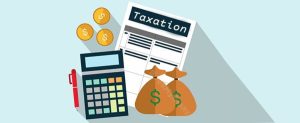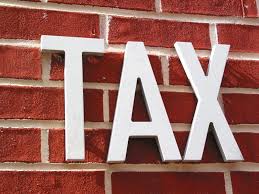Selecting the Best Tax Levy Lawyer When Facing A Tax Levy Case
If you’re facing a tax levy, you might be wondering what to do next. There are many benefits to hiring a Tax Levy Lawyer. Depending on your situation, they can help you prevent a deficiency judgment, protect your property from IRS collection efforts, and negotiate a payment plan. Before you decide to hire a Tax Levy Lawyer, you’ll need permission from your employer.
While it may seem overwhelming, a good Tax Levy Lawyer can help you navigate the process and negotiate a settlement with the IRS on your behalf. The lawyer can also present a compelling case for your situation. Your attorney will need to be able to prove your inability to pay, and that could be a lengthy challenge. If you can afford it, you can pay the amount over a few years.
Depending on your specific situation, a Tax Levy Lawyer can help you file an appeal and argue that you can pay the debt using some other method. For instance, if you’ve filed tax returns that are late, the IRS may approve a payment plan that fits your financial capabilities. Hiring a Tax Levy Lawyer is a good option for taxpayers who can’t afford an attorney.
A Tax Levy Lawyer can negotiate with the IRS on your behalf and present a strong case in the collection due process hearing. Tax law is complicated and if you’re not an experienced attorney, it’s important to hire a Tax Levy Lawyer. They can protect your interests and help you settle your tax debt over a reasonable monthly payment plan. This way, you won’t have to worry about missing a single payment.
When hiring a Tax Levy Lawyer, you’ll want to consider whether you can afford to pay an hourly fee for your consultation. While an hourly fee can be intimidating, many tax attorneys bill on a flat rate for similar cases. It’s important to research fees before choosing a Tax Levy Lawyer, but don’t be afraid to ask for references! After all, you won’t be able to use a Tax Attorney unless you’re confident in your case. Check out https://www.connecticuttaxattorneys.net/tax-levy-lawyer-waterbury-ct/ to know more about their fees and have free consultation.
You’ll also want to make sure your attorney is representing you in the case. Many companies use salespeople to pitch clients, so make sure you speak with someone directly involved in your case. Ask to speak with the individual dealing with the IRS on your behalf. A qualified Tax Levy Lawyer will not hesitate to do so. If you’re not comfortable with an attorney’s approach, don’t sign up with them.
A good Tax Levy Lawyer will have several credentials to help you get the best outcome for your case. They should have a Juris Doctorate degree from an accredited law school. In addition to that, they should also be licensed and able to practice law in your state. Additionally, they should have a CPA license. A CPA is an additional license that can improve their chances of acceptance to a top law firm.

 There are many things to consider when
There are many things to consider when 